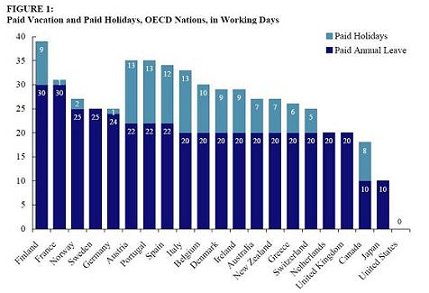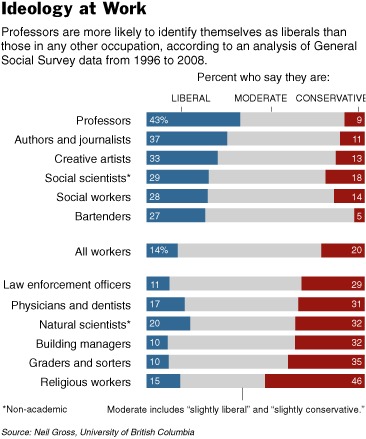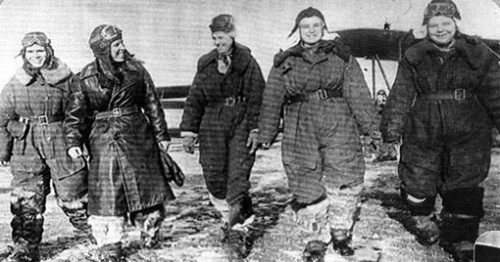As a white woman between 25 and 44 with a college degree, I am the least likely category of person to be unemployed according to an interactive graphic detailing the joblessness rate for people according to their race, education level, age, and sex (since Jan. ’07). It is a rather devastating look at social inequality. I recommend visiting the site to see for yourself, but below are some screen shots with some comparisons.
For comparison, the overall joblessness rate which, as of Sept., was at 8.6 percent:
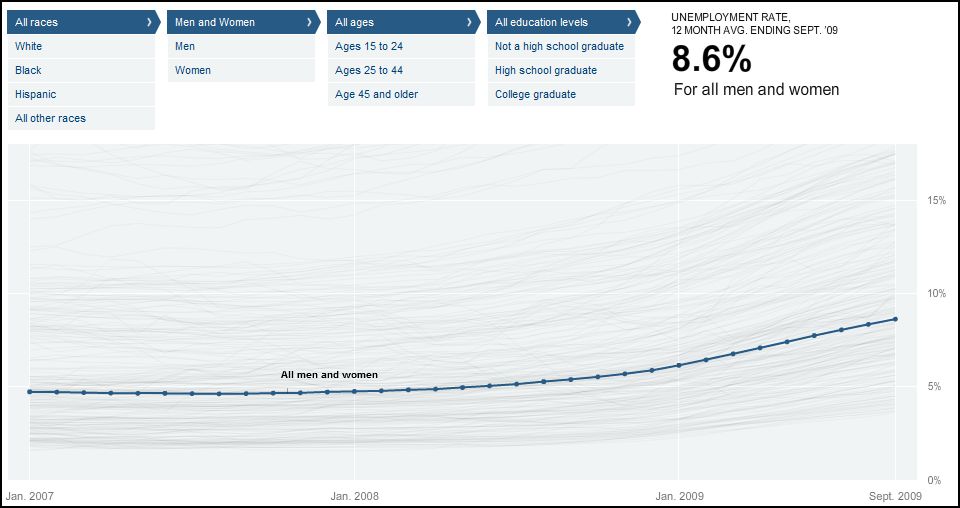
The joblessness rate for white people (notice it is lower by 1.4 percent):
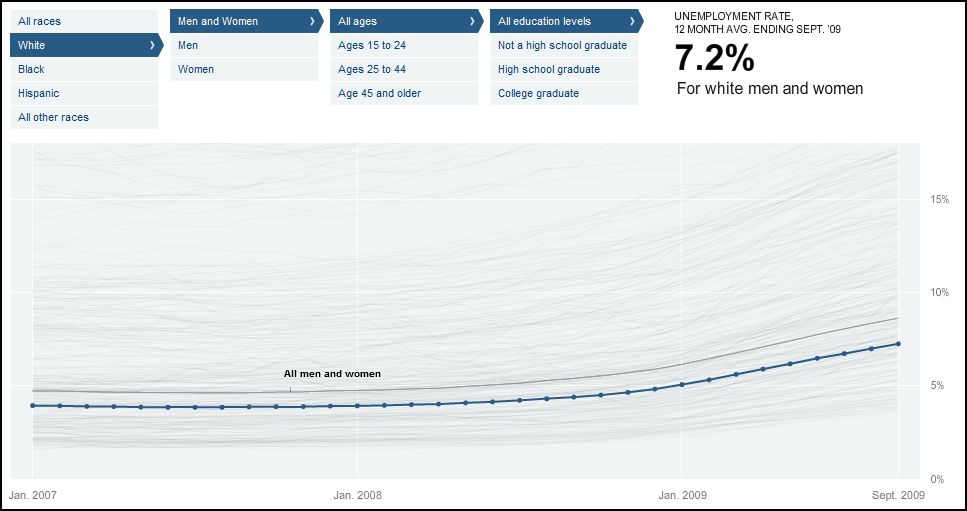
The joblessness rate for black people is almost twice that of whites:
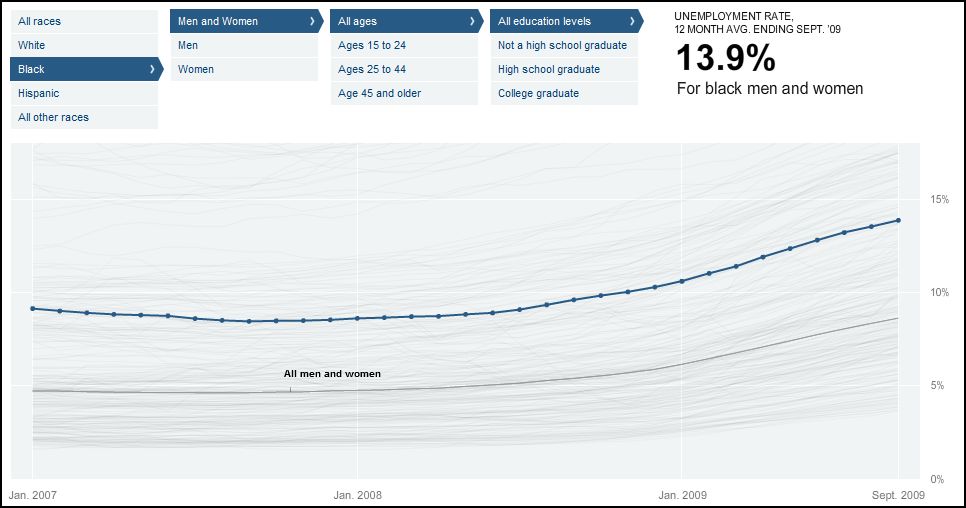
Let’s add education level.
The joblessness for whites who have not yet graduated from high school is 17.5 percent:
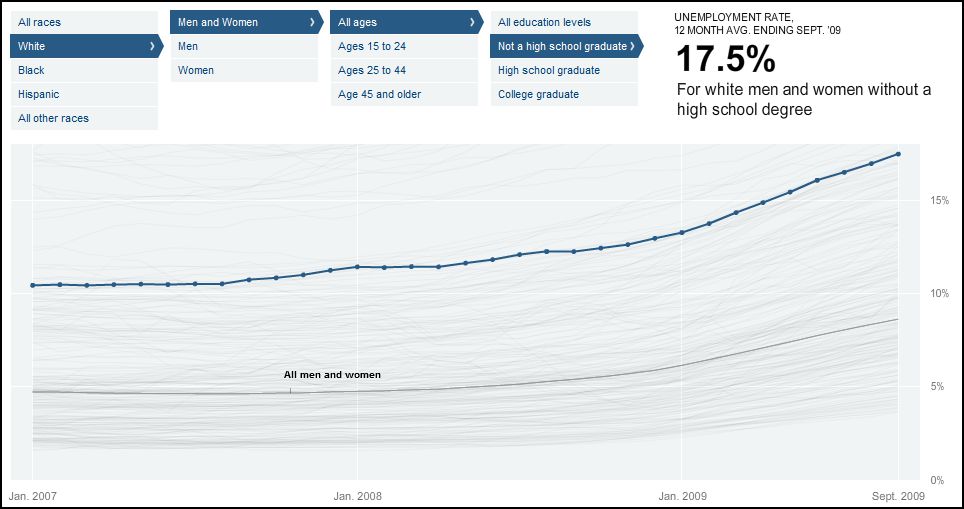
The joblessness for comparative blacks is 10 percentage points higher. Notice that the scale on the right hand side has changed from 0-20 percent (above) to 0-50 percent:
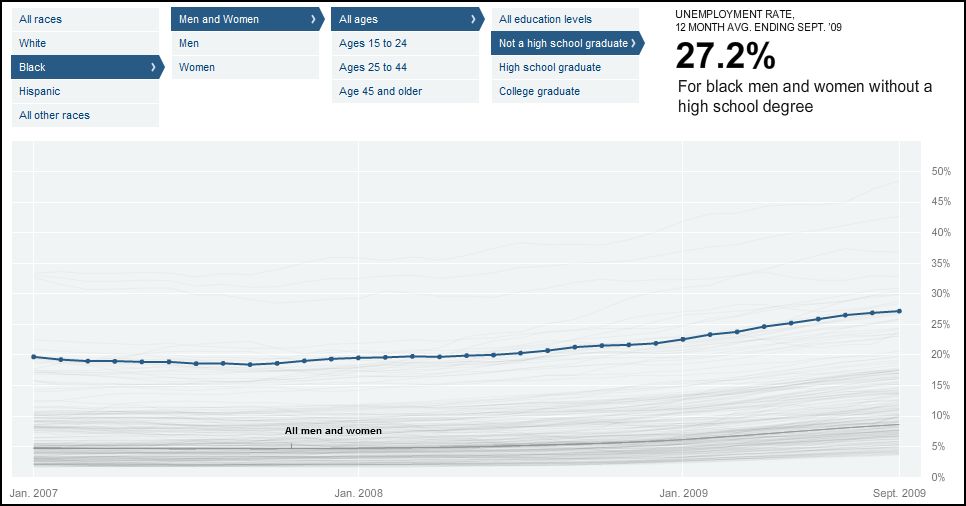
If we look at young blacks (15-24 years old) who haven’t been able to complete a high school degree, the joblessness rate is 42.7 percent:
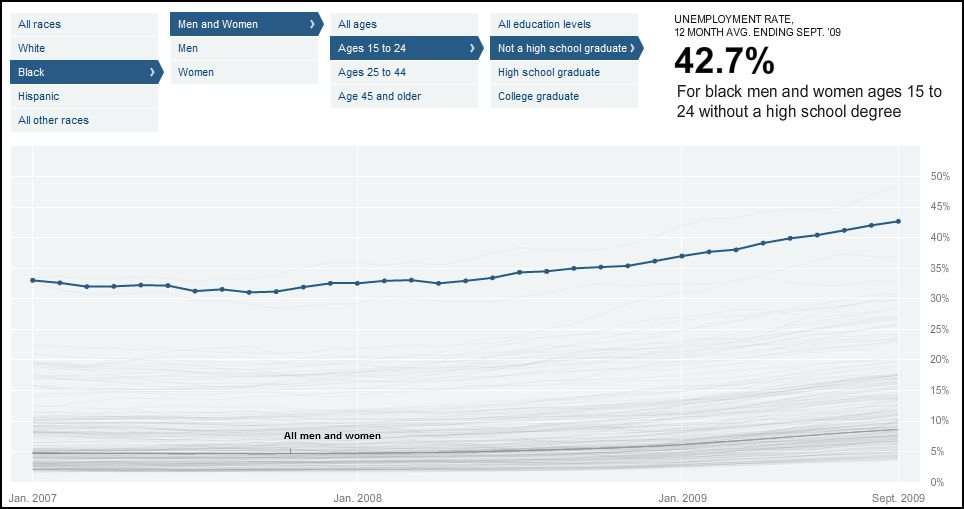
If we restrict the numbers to young black men without a diploma, we see a whopping joblessness rate of 48.5 percent.
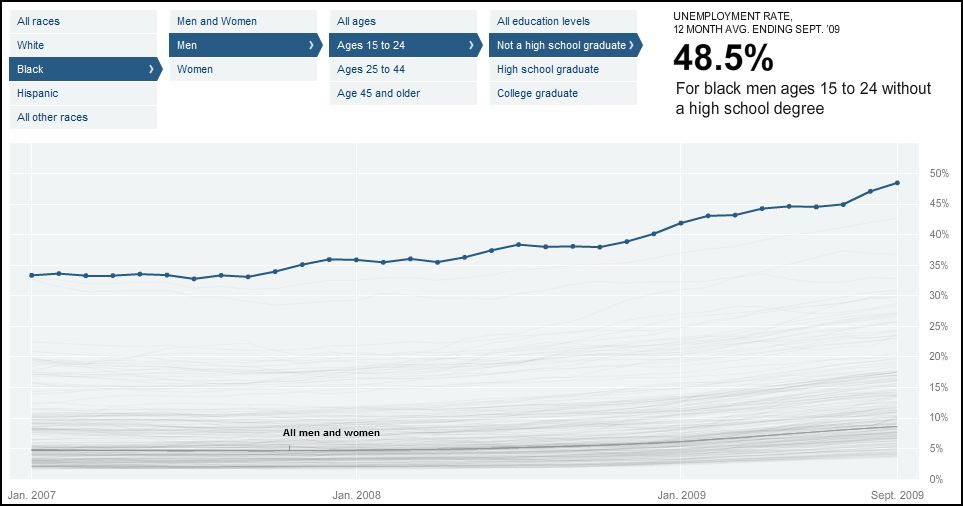
For comparison, here is the same kid, but white (the joblessness rate is cut in half, but is still huge, even by recession standards):
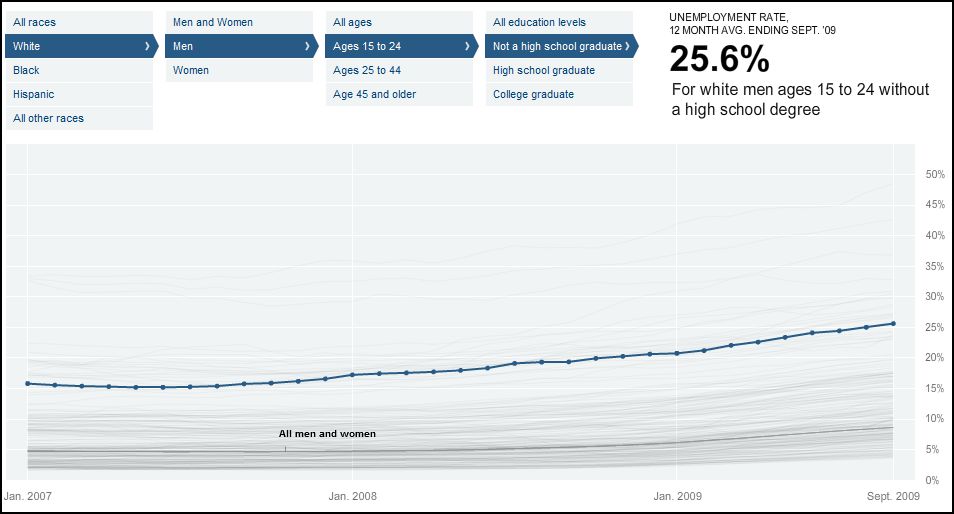
Ever wonder why young men turn to the underground economy? Well, this is why. Somewhere between 25 and 50 percent of them can’t get a job in the “above ground” economy. What’s a kid to do? Add in the rational choice of choosing work that pays more than minimum wage, and you’ve got a whole group of young people who participate in illegal activities.
Then, of course, we police black neighborhoods more aggressively than white neighborhoods, convict black people more frequently than white people, and send them to prison more often and with longer sentences (see also this post).
And, too add insult to injury, after all is said and done, a black person without a criminal record is less likely to get a job interview than a white person with one. A black person with a criminal record: his chance of getting a call back after dropping off a resume (even at a place like McDonalds) is something like five percent. No I’m not joking.
<sarcasm>Oh, but if they just had a good attitude and learned to talk right, they too could be successful in this life.</sarcasm>
It’s almost too much to bear.
Via Matthew Yglesias.
Lisa Wade, PhD is an Associate Professor at Tulane University. She is the author of American Hookup, a book about college sexual culture; a textbook about gender; and a forthcoming introductory text: Terrible Magnificent Sociology. You can follow her on Twitter and Instagram.

